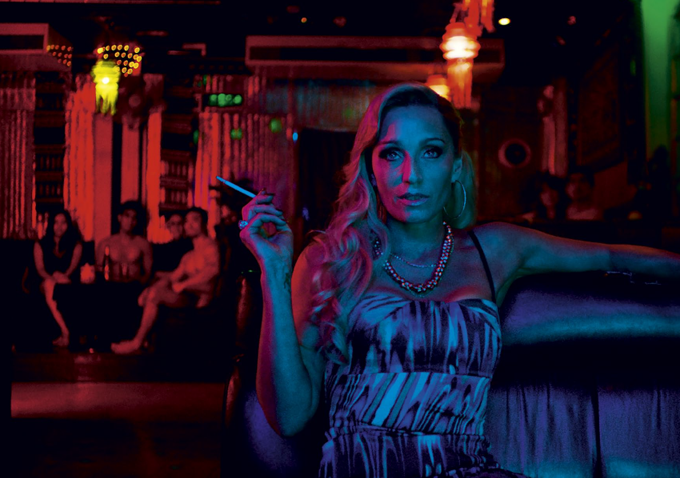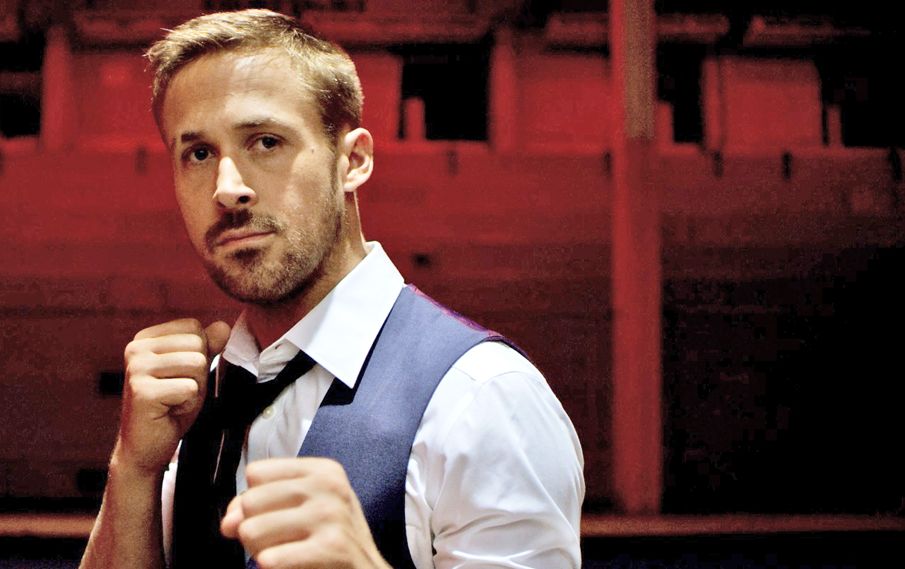Only God Forgives sees director Nicolas Winding Refn and leading man Ryan Gosling reunite to transplant their brand of stylised, stoical ultra violence from the storm drains of LA (2011’s much-garlanded Drive) to the neon grime of Bangkok. Gosling plays Julian, a largely silent gangster who runs a Thai boxing club as a front for an international drug smuggling operation. When his older brother is killed, Julian’s mother (Kristin Scott Thomas) implores him to take revenge on the Bangkok policeman deemed responsible for Billy’s death.

The film is short and the events that follow Billy’s death are packed with incident – gunfights, torture, graphic murder, odd sexual encounters, a centerpiece fight scene between Julian and the ‘angel of vengeance’ cop (Vithaya Pansringarm, equally chilling when delivering earnest karaoke or stabbing a man in the eyes). Small wonder, then, that despite its scope and danger, the film feels so excruciatingly slow. Drive, of course, relied on mood, aesthetics and hipster-approved music rather than verbiage to push things forward, and to great effect. But where Drive had Carey Mulligan’s longing looks and a talented supporting cast of Ron Perlman and Bryan Cranston to fill the dead air, Only God Forgives just has the occasional sweary outburst from Kristin Scott Thomas and eerie singing from Pansringarm to punctuate the onslaught of slow-motion misogyny, black corridors, and dappled light falling on A-list cheekbones.
Winding Refn claims that the dialogue is sparse because English is his second language, but the film surely pushes against the limits of Gosling’s admirable ability to sustain a narrative without speaking. At one point, Julian’s prostitute-cum-girlfriend asks why he lets his mother fire endless insults at him without answering back. I was thinking the same, and even Julian’s reply to this question is painfully stilted.

That’s not to say every film needs Sorkinesque rapid-fire walk-and-talks to sustain audience interest. Drive most recently and the brutally stark Valhalla Rising in 2009 showed that Winding Refn is perfectly capable of leading viewers through his hypnotic visions without chatter. And those things the film does well, it does very well. Larry Smith’s cinematography is stunning; I suppose if each and every shot is going to be in slow motion, exquisite composition is a must. The Cliff Martinez soundtrack has its moments, particularly the pounding synths and church organ that usher in the climactic fight scene.
Kristin Scott Thomas certainly livens things up as the gutter-mouthed matriarch, peddling oral filth supposedly written by Gosling himself. And Pansringarm is genuinely chilling as the ethereal policeman who strikes awe and fear into both criminals and policeman. However, given how deliberately inert Gosling’s character is, it’s hard for the two of them to settle into the hero/villain dichotomy that Winding Refn must have had in mind when he first imagined the film as “a thriller produced as a western, all in the Far East, and with a modern cowboy hero.” This doesn’t feel like a western; it feels more like a dream Gaspar Noe might have after nodding off on the flight back from a boozy weekend in Bangkok.
Maybe that’s the desired effect. The problem is that it isn’t a dream I want to have. It’s horrible people doing unspeakable things to each other, slowly. I don’t want any of these characters to ride off into the sunset; I care only enough to the extent that I hate them all. The odd striking image aside, it makes for a wholly unsatisfying 90 minutes.





1 Comment
Probably going to cancel my booking now!